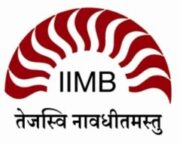In the Indian educational and business management environment, coaching is generally seen as something ‘additional’ and as a remedial measure for underperformance. But practically, coaching serves a much broader and comprehensive purpose, encompassing its role, methodology and outcomes it can achieve.
In the Indian Context, people are introduced to the word ‘Coaching’ since their school days – particularly as a substitute for tuitions. The educational context of coaching gets translated to business context and thus it gives raise to some misinterpretations. Let’s examine and clear some of those misunderstandings.
#1 Tutoring vs Coaching
- Tutoring’s primary focus is on providing additional assistance on understanding a subject matter in a direct instructional way and developing expertise over it. But coaching focuses on learning processes, optimization of personal abilities & limitations with a goal of maximum performance for a better outcome.
- Tutoring involves a lot of efforts to clarify concepts to understand the core content of the subject matter, which coaching’s approach is towards building synergies along with self-discovery of strengths and weaknesses for achieving organisational objectives.
- Weather its tutoring or providing expert consultancy, the relationship is mostly transactional. Whereas, in case of coaching, a much more dynamic relationship with continuous support is practiced improving the effectiveness of business activities.
- Tutoring is generally used from the perspective of school education. But coaching is not limited to school education. It can be used in building new productive habits, build company cultures in businesses and obviously improve performance in sports.

#2 Coaching vs Micro-management
It is unfortunate that some people tend to misinterpret ‘Coaching’, only as a remedy for poor performance and equate it to an authoritative form of Leadership and Micro-management to build efficiency. Coaching, being an active form of Leadership, differs in its approach when compared to micro-management.
- Focus: Coaching focuses on employee empowerment and development for maximum performance, while micromanagement revolves around controlling and dictating every action of the team.
- As per a report from ICF & HCI, it was observed that organisations with a strong coaching-culture were found to be high-performing organisations.
- Communication: Coaching involves a constructive and collaborative communication to facilitate learning and development, whereas micro-management operates with a one-way — top-down communication channel.
- Approach: Coaching aims to build trust in the team member as it enables them to take ownership of their work, as opposed to micro-management which depletes trust and hinders the team member’s ability to think independently. One of the indicators of good leadership quality is in the trust placed by the seniors, juniors, and peers during challenges in work.
- Outcome: Coaching your team members boosts their morale and increases engagement, but micro-management demoralizes your team, leading to reduced job satisfaction and burnout.
- To support the above point, a report from Zenger and Folkman in Forbes, indicated that employees who considered their manager to be a good coach, felt less likely to quit their jobs during turbulent times and rated their managers more positively.
#3 Coaching vs Mentoring
Another practice in business conversations is that coaching is used interchangeably with mentoring. Even though, many elements of coaching and mentoring overlap, there are still subtle differences between the two.
- Relationship: Coaching typically involves a professional relationship between the coach and the individual/team seeking development. Coaching interactions are well planned and structured. Whereas in mentoring, it involves an informal and personal relationship between the mentor and the mentee, and the interactions are unstructured and spontaneous.
- Purpose: The purpose of coaching is for performance improvement, skill development and achieving short-term specific goals efficiently. While mentoring’s purpose is for long-term career development and overall personal growth.
- Approach: Coaches provide guidance, feedback, and support to help the team overcome challenges, get motivated and achieve goals. Mentors share their knowledge, experiences and help mentees navigate their career path.
- Context: Coaches need not work in the same domain of business as their team, but the coaching expertise can be applied to get results for their team. Mentors generally tend to be in the same organisation as the mentee or at least belong to the same domain of work as the mentee.
It is agreed that both approaches play an important role in supporting individuals and teams in their professional journey to success.

If your organisation aspires to lead their teams with a coaching culture, find out more about the Certificate Programme in Leadership Coaching offered by IIMB Executive Education.
After the successful completion of the programme, the participants automatically qualify as IIM-Bangalore EEP Alumni and can obtain ICF certified ACC level coach accreditation.
Learn more and Register now: https://eep.iimb.ac.in/course/certificate-programme-in-leadership-coaching/?utm_campaign=L24007&utm_content=CPLC-1


